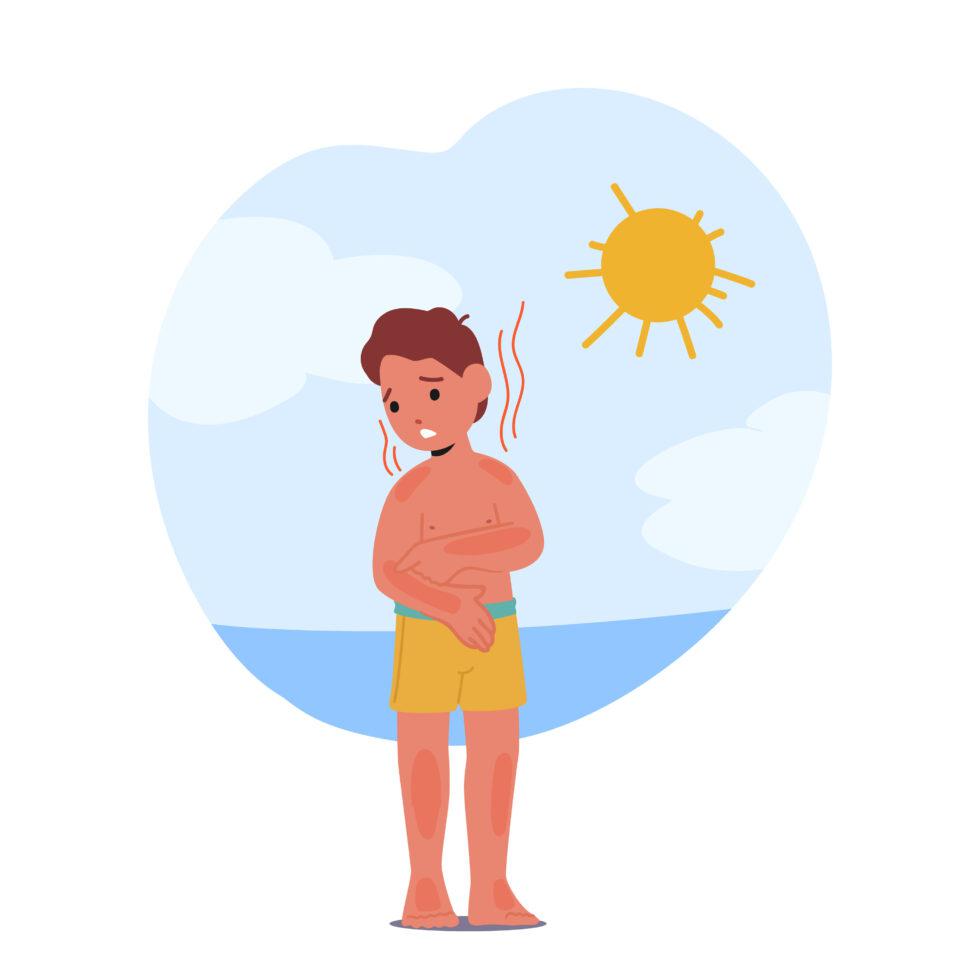
Think you might have sun poisoning? Here’s everything you need to know & why you should take it seriously. Walk into AFC for peace of mind.
Spending time outside is one of the best parts of summer in Mooresville. Whether you’re boating on Lake Norman, working in the yard, or cheering on the kids at a sports tournament, chances are you’re soaking up more sun than you realize. And while a mild sunburn is pretty common, it’s important to know when that burn may be something more serious, like sun poisoning.
Sun poisoning isn’t just a more intense sunburn. It’s a nasty reaction that can affect your whole body, and it often needs more than aloe and a day indoors. In some cases, it can even lead to heat exhaustion or dehydration that requires medical care.
At AFC Mooresville, we’re here to help you understand the signs, know when to seek treatment and recover quickly with support from experienced providers.
What Is Sun Poisoning?
Too much (ultraviolet) UV radiation will result in sun poisoning, a severe inflammatory response. While it often starts like a regular sunburn, the reaction goes deeper, impacting the skin and sometimes your entire system.
It’s most commonly caused by extended time in direct sunlight without protection, and it can come on faster than you might think, especially on hot, humid days.
Signs It’s More Than Just a Sunburn
A basic sunburn is usually red, sore and may peel after a few days. Sun poisoning, however, often includes more intense and lingering symptoms, which can appear within hours or develop more slowly over the course of a day.
Symptoms of sun poisoning may include:
- Deep redness and swelling
- Painful or fluid-filled blisters
- Itchy rashes, hives or small raised bumps
- Fever and chills
- Headache, dizziness or lightheadedness
- Fatigue or nausea
- Dehydration
If you’re experiencing any of the above, it’s a good sign that your body is struggling to recover on its own.
Why Dehydration and Skin Damage Go Hand in Hand
Sun poisoning can cause significant fluid loss, especially when it’s paired with heat exposure or physical activity. As your skin becomes inflamed and your body tries to cool down, you can become dehydrated quickly, and that can worsen symptoms like dizziness, fatigue and headache.
In Mooresville’s summer heat, it’s not uncommon for dehydration and sun poisoning to occur at the same time, which makes recovery harder without proper treatment.
That’s why some of our team members at AFC Mooresville are trained in IV therapy. If your body needs a quicker way to rehydrate than water alone can offer, we’re equipped to help you bounce back fast.
When to See a Provider at AFC Mooresville
You don’t need to wait until things get worse to seek help. Come see us if you experience:
- Fever above 100.4°F
- Severe blistering or signs of skin infection
- Persistent or worsening fatigue, dizziness or nausea
- Dehydration that doesn’t improve with fluids
- A rash or hives that won’t go away
- Sunburn symptoms that linger or worsen over a few days
How We Treat Severe Sun Exposure
At AFC Mooresville, our providers can:
- Evaluate the extent of your sun damage
- Clean and treat any blisters or broken skin
- Prescribe stronger topical creams or antihistamines for inflammation
- Administer IV fluids to treat dehydration when needed
- Rule out heat-related illnesses like heat exhaustion or heatstroke
We can also help determine whether your symptoms are caused by sun poisoning, a heat rash, or something else entirely, like an allergic reaction or skin infection. We’re open seven days a week with no appointment necessary, so it’s easy to get in, get seen and get relief, right when you need it.
How to Avoid Sun Poisoning This Summer
The best treatment is prevention. To avoid sun poisoning and heat-related illness:
- Apply broad-spectrum SPF 30+ sunscreen before heading outdoors
- Reapply sunscreen every 2 hours, especially if swimming or sweating
- Stay hydrated by drinking plenty of water throughout the day
- Wear lightweight, protective clothing and a hat
- Limit sun exposure between 10 a.m. and 4 p.m., when UV rays are strongest
- Take regular breaks in the shade or air conditioning
Final Takeaways
It might seem like “just a bad burn,” but if you’re feeling wiped out, in pain or struggling to bounce back, it’s time to get checked out. Sun poisoning is more common than people realize, and it’s treatable with the right care.
At AFC Mooresville, we’re ready to help you recover safely, whether you need prescription relief, wound care or IV hydration. Walk in anytime, we’re here to help you heal and enjoy the rest of your summer with confidence.